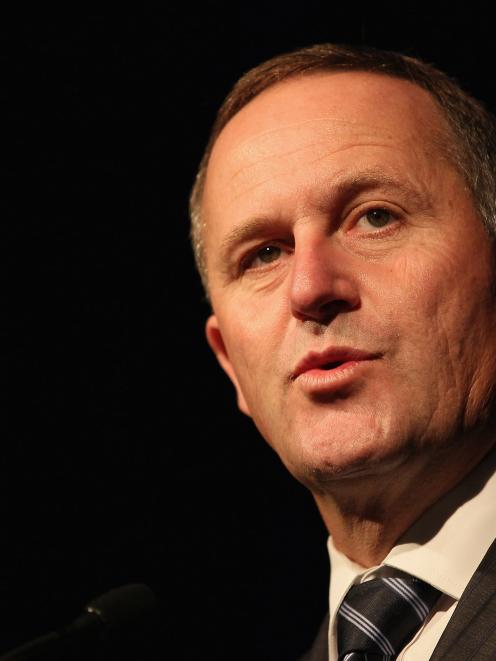
Prime Minister and Minister Responsible for GCSB John Key welcomed the passing of the legislation.
"Despite ill-informed claims to the contrary, nothing in this legislation allows for wholesale spying on New Zealanders. It actually tightens, not widens, the existing regime,'' Mr Key said.
"This essential legislation makes it clear what the GCSB may and may not do, and fixes an Act passed under the Labour Government a decade ago, which was not, and probably never was, fit for purpose.
"It clarifies the GCSB's legal framework and substantially increases oversight of the country's intelligence agencies, which will go some way to rebuilding public confidence in the GCSB,'' Mr Key said.
The legislation passed today makes the GCSB's three functions clear, he said.
"These are: information assurance and cyber security; foreign intelligence, and assisting other agencies.''
The Green Party said a fundamental constraint on freedom had become law.
"The National Government, along with Peter Dunne and John Banks, have signed away significant freedoms of New Zealanders by passing the Government Communications and Security Bureau (GCSB) legislation tonight,'' Greens' Co-leader Dr Russel Norman said.
"This legislation...restricts our freedom of expression and our right to live without surveillance,'' he said.
During today's debate, Mr Key said if he could disclose some of the briefings he has had about risks to New Zealand it would ''cut dead" some of the opposition to the GCSB bill, but he could not divulge them.
He said he regretted that many citizens had become agitated and alarmed about the bill but he would be more regretful if the bill's changes were not passed.
"The bill is being passed right now because it is needed right now.
"Others may play politics with the security and lives of New Zealanders, but I cannot and I do not and I will not."
Mr Key made his comments during the third reading and final reading of the Government Communications Security Bureau and Related Legislation Amendment Bill.
He said the bill "isn't a revolution in the way New Zealand conducts its intelligence operations."
It made it clear what the GCSB could and could not do.
He said nothing in the bill allowed for wholesale surveillance of New Zealanders.
He repeated the statements he made to the Herald last week that approving interception warrants of New Zealanders under the cyber security function would be a two-step process and that a warrant to look at content would be with the consent of the New Zealander unless there was a good reason not to.
It is Mr Key's first speech in Parliament on the bill, with previous debates having been handled by Justice Minister Judith Collins and Attorney-General Chris Finlayson.
Under the bill, the GCSB will have three functions. It will retain its traditional function of collecting foreign intelligence, and it is not allowed to spy on New Zealanders under that function, either under the current law or the new law.
Another function will be to assist the SIS, the police and Defence in conducting duly warranted interceptions of New Zealanders. It has been doing this already under doubtful legal authority, because while the current law says it can help such agencies in on specific ways, it explicitly says it cannot spy on New Zealanders.
A further expansion of powers comes under the GCSB's cyber-security function. Until now its job has been to protect Government communications only from attack, but it will be extended to private-sector cyber systems if they are important enough to New Zealand.
In his speech, Mr Key also reiterated the position on metadata - that it would be treated the same in bill as communications, which means that before a New Zealander's metadata can be collected, it will require a warrant to be signed by the Prime Minister and the Commissioner of Security Warrants.
Labour leader David Shearer said a Labour led Government would hold an inquiry in order to create a world class intelligence service.
Labour deputy Grant Robertson said Mr Key's claim that the bill did not expand the GCSB's function was "fundamentally wrong."
There were clearly new powers under the cyber security function.
Greens co-leader Russel Norman said many people died last century fighting for freedoms "and we here today are fighting for those basic principles."
He said it was hard to have a debate about protecting freedom in the abstract and that was made harder with the Prime Minister "screaming hysterically about Al Qaeda."
Attorney-General Chris Finlayson attacked several critics of the bill including Rodney Harrison, QC, who presented the Law Society's submission on the bill, former Prime Minister Sir Geoffrey Palmer, former director the GCSB Sir Bruce Ferguson, and historian and academic Dame Anne Salmond.
He said the bill hadn't been rushed through but perhaps it had not been long enough for Mr harrison to come to grips with it; he said much of difficulties that the bill addressed had occurred under Sir Bruce's watch despite him trying to reinvent himself as a commentator;
He said Sir Geoffrey Palmer had allowed the GCSB to operate without any legislation at all while he had been Prime Minister and he described Dame Anne's attacks as "shrill and unprofessional."
The real problem had been with the passage of the 2003 legislation which should never have been passed.
- by Audrey Young of the New Zealand Herald
